In this article:
Bronchitis is an infection or inflammation of the lining of a child’s bronchial tubes. These tubes are the air passageways that connect the trachea, or windpipe, to the lungs.
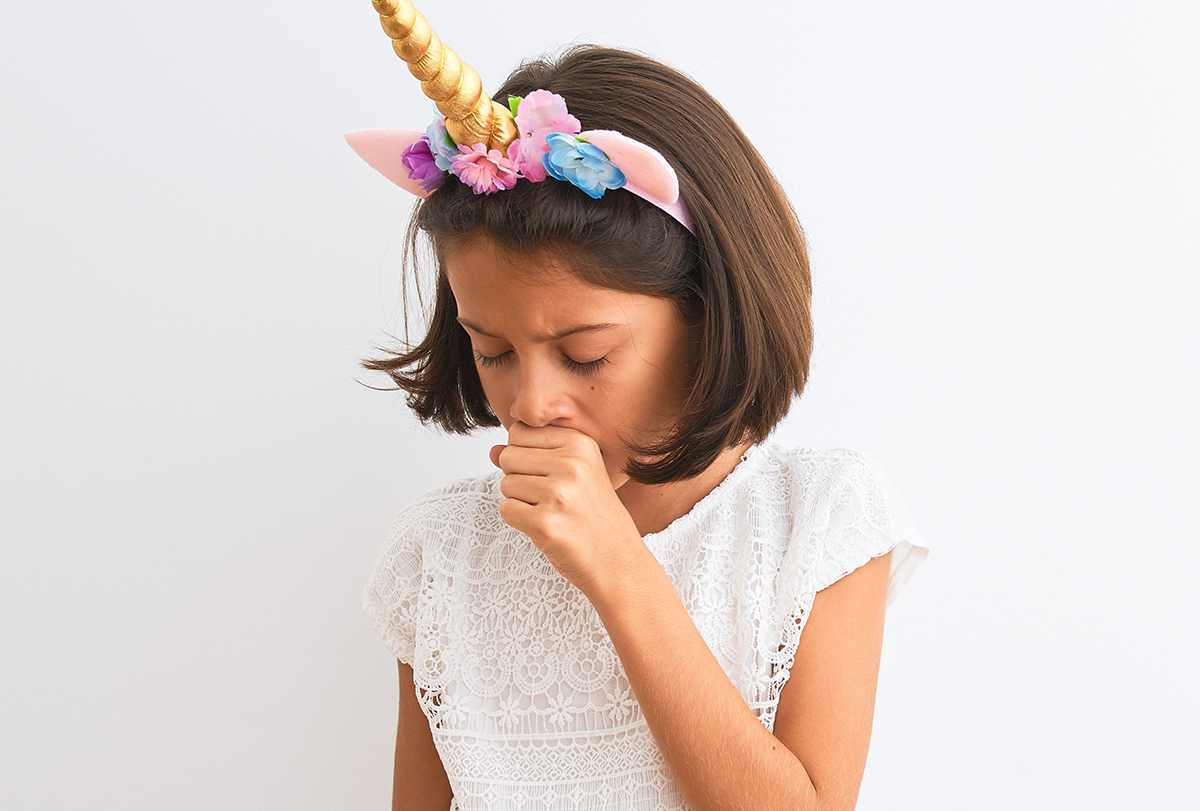
The lining of the bronchial tubes is extremely fragile and secretes pathogen-fighting mucus, which helps safeguard your child’s respiratory system by warding off the threat of infections.
Bronchitis sets in when these tubes become increasingly inflamed and start producing more mucus than normal, causing labored breathing. This inflammation of the bronchial lining in children usually occurs when the virus responsible for your child’s cold, sore throat, flu, or sinus infection breaks through the respiratory defenses and spreads to the bronchi.
It is particularly important to look out for and pay heed to any warning signals of bronchitis in babies so as to catch the infection early and prevent it from spreading further. (1)
Natural Remedies for Bronchitis in Children
Here are some safe, simple, and easy ways to relieve bronchitis in children without medication:
1. Gargle with salt water
If your child is old enough to gargle, gargling with salt water can provide quick relief from bronchitis signs and symptoms, especially cough and sore throat.
Salt works like an antiseptic that helps draw out the mucus. This, in turn, helps cut down the phlegm, reduces inflammation, and soothes the irritated throat membranes. (2)
How to do:
- Mix ½ teaspoon of salt into a glass of warm water. If needed, add a small amount of honey to improve the taste.
- Make your child gargle with the solution, and remind him or her to spit the water out after gargling.
- Do this several times a day for best results.
Note: Make sure the child does not swallow the water after gargling.
2. Use a humidifier
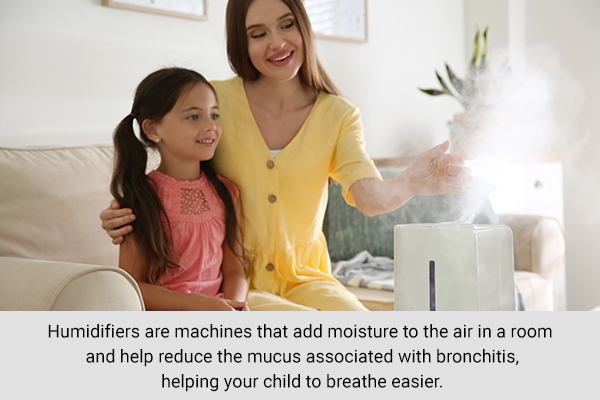
Humidifiers are machines that add moisture to the air in a room and help reduce the mucus associated with bronchitis, helping your child to breathe easier. A cool-mist humidifier is highly recommended to ease coughing. (3)
Use a humidifier wherever possible in your home, especially in the room where your child sleeps.
Another option is to place a bowl of hot water in the room to increase the moisture in the air. You can also place a pot of water on the radiator in your child’s room.
Note: Whether you are using a humidifier or a bowl of hot water, be sure to place it in a safe place to prevent accidents. Also, regularly disinfect and clean it to keep it mold-free. Make sure the humidifier machine is cleaned very well before use and that the humidity levels don’t stay too high. This can breed mold or bacteria.
3. Honey can provide symptomatic relief
Honey is a good remedy to curb coughing, one of the most common symptoms of bronchitis. (4)
Due to the antibacterial and antiviral ability of honey, it greatly contributes to the relief of a cough associated with bronchitis. It can help relieve throat inflammation as well.
A study published in the Archives of Pediatrics and Adolescent Medicine in 2007 reports that honey is a preferable treatment for cough and sleep difficulty associated with childhood upper respiratory tract infection. (5)
How to use:
- Mix 2 teaspoons of raw honey with 1 teaspoon of lemon juice. Give it to your child every few hours for symptom relief.
- You can also have your child swallow a spoonful of buckwheat honey several times a day.
- A glass of warm milk with honey before going to sleep can relieve a cough and promote better sleep.
Note: Honey is only recommended for children older than 1 year of age.
4. Ginger can provide relief
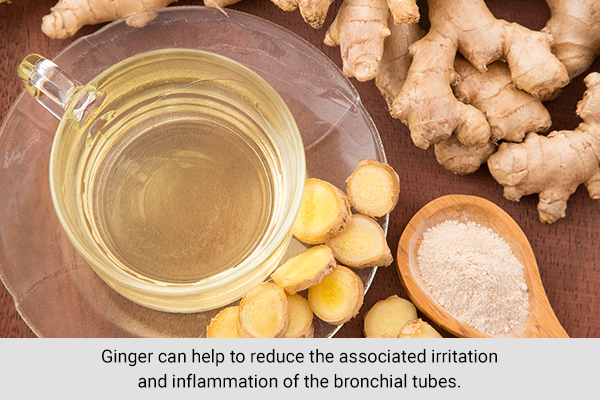
Ginger is an excellent natural remedy to treat bronchitis.
Containing anti-inflammatory and immunity-boosting properties, ginger is very effective at reducing bronchitis symptoms. It can also help to reduce the associated irritation and inflammation of the bronchial tubes.
A 2012 study published in Phytotherapy Research suggests that distinct ginger compounds could be used as anti-inflammatory drugs in respiratory infections. (6)
How to use:
- You can make herbal ginger tea by boiling 1 teaspoon of ground ginger in water for 15 minutes. Add a little honey (for children older than 1) and give it to your child 2–3 times a day.
- You can also combine 1 teaspoon each of ginger powder and honey and give it to your child with milk 2–3 times a day.
- You can even give ginger candies to your child to chew throughout the day.
5. Use garlic
Due to its antibiotic and antiviral properties, garlic is highly beneficial in treating bronchitis, especially acute bronchitis in children.
A 2016 study reports that garlic was successful in inhibiting the growth of the bronchitis-inducing virus, thereby making it an effective ingredient for treating bronchitis. (7)
How to use:
- Chop about 2–3 cloves of garlic.
- Place them in a pot.
- Add a glass of milk (for children aged 1 and above)
- Boil the mixture.
- Give this to your child to drink daily before bedtime.
6. Try using turmeric

Turmeric is another effective herb in treating bronchitis in children. (8) It contains the active ingredient curcumin, a powerful antioxidant and anti-inflammatory compound that helps expectorate the mucus and minimize the swelling of the bronchial tubes.
Also, it helps deal with cough, pain, and other related symptoms of bronchitis.
How to use:
- Mix 1 teaspoon of turmeric powder into 1 cup of milk and boil it. Allow it to cool a bit, and then give it to your child to drink twice daily.
- You can opt to give curcumin supplements to your child, but only after consulting a doctor.
Note: Consult your doctor for the correct weight-based dosage before administering turmeric to your child.
7. Give plenty of fluids to your child
When dealing with bronchitis in children, be sure to give plenty of fluids to your child. This will help prevent dehydration, which can worsen the condition.
Staying well-hydrated also helps thin the mucus, making it easier to expel it and reduce coughing. Expelling mucus also helps get germs out of your child’s system for faster healing from any kind of infection.
When it comes to healthy fluids, water is the best option. It is recommended to offer warm fluids. A 2008 study published in Rhinology reports that a hot tasty drink is a beneficial treatment for the relief of most signs and symptoms of the common cold and flu. (9)
Make your child drink enough lukewarm water throughout the day. Along with water, give lemon water, fruit juice, vegetable soup, and clear broths at regular intervals.
If your child refuses large amounts of fluids at a time, give smaller amounts more often. Also, do not force your child to take fluids, as that may cause your child to vomit.
8. Ensure your child gets adequate rest
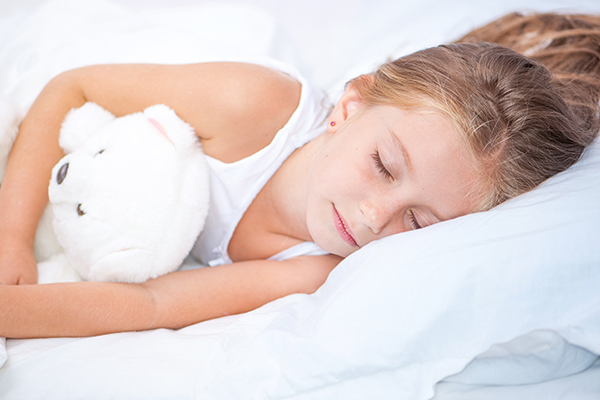
Because bronchitis is a lung infection that requires you to put in a lot of effort to do something as basic as breathing, it can really take it out of your child. Due to the constant exertion on the chest, your child can feel extremely tired all the time, rendering him/her incapable of doing anything else.
As your lungs need time to heal, proper rest and sleep are a must. So, let your child get plenty of rest and sleep to expedite the recovery process. Children can go to school as long as there is no fever, although sports or exercise activities should be avoided regardless.
Exercising while having a lung infection can make it worse. Playtime would have to be cut short as running, swimming, biking, and other exercises that lead to heavy breathing can end up aggravating lung damage. Limit activity until symptoms improve.
Types and Causes of Bronchitis in Children
There are two kinds of bronchitis – acute bronchitis and chronic bronchitis – both of which differ in terms of their causes.
1. Acute bronchitis
The onset of acute bronchitis in children is rather quick, and it leads to severe symptoms. (10) Acute bronchitis generally lasts for two to three weeks.
This condition can be majorly attributed to a viral infection, even though a bacterial infection can also engender the same effect despite a rarer incidence. Acute bronchitis often ensues in the wake of a common cold episode or some other respiratory tract infections such as the following: (11)
- Children who suffer from chronic sinusitis and allergies or those with enlarged tonsils and adenoids are at an increased risk of developing acute bronchitis.
- Dust, allergens, strong fumes, secondhand smoke, and asthma attack are prime culprits for the onset of acute bronchitis.
- Bronchitis can even spiral into more severe pneumonia, which is considered to be one of its most common complications.
- Children who grapple with immunodeficiency or cystic fibrosis are predisposed to developing secondary bacterial infections that could result in bronchitis. (12)
2. Chronic bronchitis
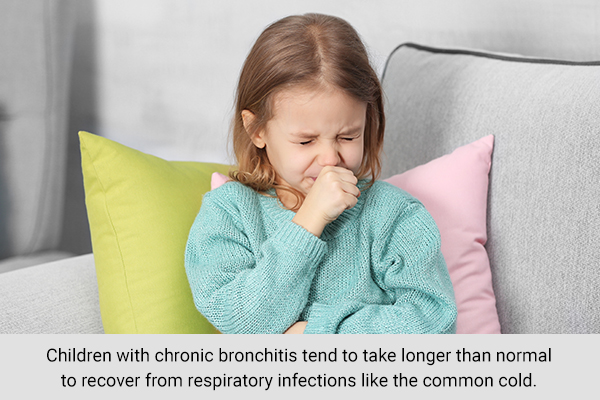
Chronic bronchitis is mainly prevalent among people over the age of 45, but children, teenagers, and young adults are not completely out of its grasp.
Children with chronic bronchitis tend to take longer than normal to recover from respiratory infections like the common cold. The severity of this condition can range from mild to intense, and it tends to last for at least four weeks or more. (13)
Signs and Symptoms of Bronchitis in Children
The most common bronchitis signs and symptoms in children are a wet-sounding cough and increased mucus or sputum production. In fact, bronchitis results in a persistent cough and clogging of the airways, which makes it increasingly difficult to pass air in and out of the lungs. (14)
Other associated signs and symptoms include:
- A mild headache
- Low-grade fever
- A sore throat
- Soreness or tightness in the chest
- Feeling tired
- Body aches
- Wheezing
- Shortness of breath
Difference Between Bronchitis and Bronchiolitis
Before you start evaluating the best treatment options for bronchitis in children, you must not get it confused with another condition called bronchiolitis, a specific condition that affects the smaller airways that branch off from the bronchial tubes. This is more common with infants and children under the age of 2.
While the usual culprit for this condition is the respiratory syncytial virus, it can sometimes be caused by adenoviruses and rhinoviruses. For bronchiolitis, the treatment options are very different from those for acute or chronic bronchitis in children.
Prevention for Bronchitis in Children
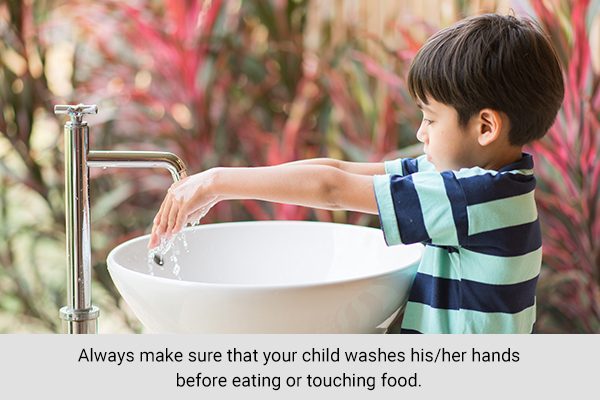
- Make sure your child does not mingle with people who may have a cold or a viral infection, such as the flu.
- Instruct your child to refrain from sharing his food bowls or drinking glasses with others.
- Always make sure that your child washes his/her hands before eating or touching food.
- Inculcate in your child the habit of covering the mouth with a handkerchief or tissue when sneezing or coughing or, when a handkerchief or tissue is unavailable, coughing into the inner elbow.
- Clean and disinfect surfaces around the child to prevent the spread of the infection.
- Let the child sit or sleep in an upright position to ease any breathing problems.
- Try to keep your child in an environment that is free from smoke, pollutants, and dust particles.
- Regular cleaning of the house is necessary to keep the house free from dust, mites, and other allergy triggers and infection-causing pathogens.
- Bed sheets, carpets, toys, and other usable items must be washed well or vacuumed regularly.
- Food substances that seem to trigger a bronchial cough must be avoided to prevent bronchitis in children.
- Limit exposure to air irritants, such as dust, chemical fumes, and other pollutants. Make your child wear a mask, if necessary.
When to See a Doctor
Get your child medically examined by a trusted pediatrician if you encounter any of the following symptoms:
- Ongoing fever that fails to subside
- Daily congestion
- Troubled breathing
- Persistent wheezing
Other symptoms of concern that should be investigated further include:
- Blood in the sputum
- Loss of appetite
- Dehydration caused by a lack of fluid intake
If your child has asthma and has suffered an attack in the recent past, it is all the more important to work closely with your doctor to avoid any potential complications.
Final Word
The majority of childhood bronchitis is self-limiting, which means the condition gets better on its own. However, you can try these home remedies to alleviate the symptoms.
Consult your pediatrician if your child’s wet cough fails to clear on its own even after two or three weeks. When it comes to your child’s health, it’s always best to be on the safer side and seek professional help at the slightest whiff of trouble.
- Was this article helpful?
- YES, THANKS!NOT REALLY



